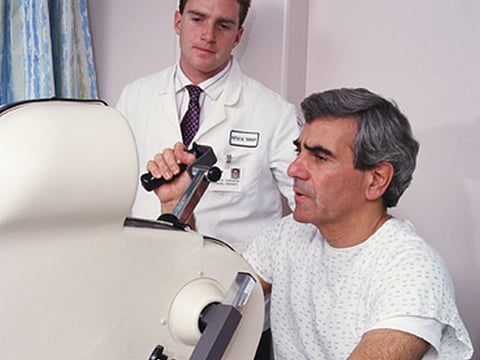MONDAY, March 19, 2018 (HealthDay News) -- America's heart health went from bad to worse between 1988 and 2014, a new report warns.
That means roughly 60 percent of whites, 75 percent of Mexican Americans and 85 percent of black Americans are going through life today with subpar heart health.
At first glance, the study seems to offer some good news: A long-standing gap in heart health between white and black Americans has narrowed.
But, "this is due to worsening cardiovascular health among whites" and not to improvements for blacks and Mexican Americans, lead author Dr. Arleen Brown stressed.
Brown is a professor at the University of California, Los Angeles' division of general internal medicine and health services research.
The findings come from a 25-year look at how more than 41,000 adults, aged 25 and up, are doing on selected health factors known as Life's Simple 7: blood pressure; cholesterol status; blood sugar levels; body mass index (BMI), a benchmark of obesity; activity habits; overall diet; and smoking history.
Participants had no history of heart disease.
Cardiovascular disease includes heart disease and stroke, and is the leading cause of death and disability in the United States. Overall, black and Hispanic Americans have higher rates of cardiovascular disease at a younger age than whites, Brown said.
Patient data for the study was drawn from the U.S. National Health and Nutrition Examination Surveys conducted between 1988 and 2014.
Participants were given an overall heart health score at different points during the study, based on Life's Simple 7. This let researchers observe both overall trends and relative well-being by race.
The study authors described the current picture as "poor." Just under 40 percent of whites, 25 percent of Mexican Americans and 15 percent of black Americans lead heart-healthy lives, the study found.
Digging deeper, the investigators found that between 1988 and 1994, the percentage of heart-healthy black Americans aged 25 to 44 was 23 percentage points lower than that of whites. For those 65 years and older, it was 8 percentage points lower, respectively.
By 2011 to 2014, those gaps narrowed considerably, to roughly 11 percentage points for the younger group and 4 percentage points for seniors.
But that narrowing was due to a troubling decline in heart health among whites.
For example, between 1988 and 2014, the percentage of heart healthy whites aged 25 to 44 dropped more than 15 percentage points. Similarly, a drop of nearly 5 percentage points was seen among whites aged 65 and older, the findings showed.
The findings were reported online March 19 in the Annals of Internal Medicine.
Reversing the decline will likely require action on several fronts, Brown said.
"Blood pressure and cholesterol control can be improved by lifestyle changes and the quality of medical care," she said.
"We can encourage diet and exercise by increasing access to healthy foods and safe places to exercise. These are influenced by communities and policy makers. Smoking rates can be influenced by tobacco control policies, such as smoking restrictions, tax policy, restricting youth access to tobacco," Brown said.
Dr. George Mensah, author of an accompanying journal editorial, also sees the need for what Brown called a "multipronged approach."
"Over the last 50 years, we have seen dramatic reductions in the rate of dying from heart disease. However, we have not had a similar level of success in promoting optimal heart health," he said.
Mensah directs the U.S. National Heart, Lung, and Blood Institute's Center for Translation Research and Implementation Science.
Mensah said building awareness is key. "All actions begin with lifestyle and behavioral changes," he said, adding that medication is available when such changes alone aren't enough.
"Creating environments that support heart-healthy living in all Americans is crucial," Mensah added.
More information
There's more on heart health at the American Heart Association.



